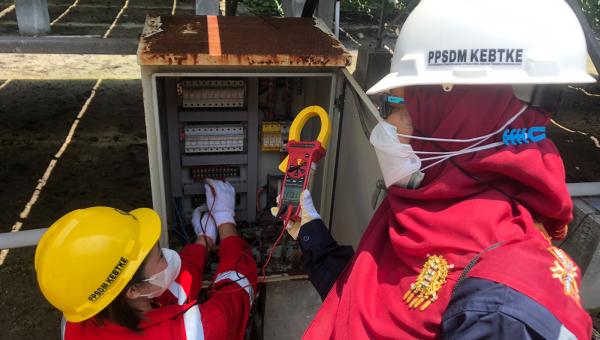16/09/2023
Sustainable Tourism Initiatives on SDG 2030 Indonesia
Sustainable tourism is a growing movement that seeks to create a positive impact on the environment, society, and economy by encouraging responsible travel. Indonesia, as one of the most diverse countries in the world, has embraced sustainable tourism initiatives as part of its commitment to the United Nations Sustainable Development Goals (SDGs) for 2030. This article will delve into various aspects of sustainable tourism initiatives in Indonesia, highlighting their importance, benefits, challenges, and how they intertwine with local communities, conservation efforts, and overall economic development. Posted by https://sdg2030indonesia.org/

Sustainable tourism is more than just a trendy concept; it embodies the philosophy of responsible travel. It incorporates environmentally-friendly practices, socio-cultural respect, and economic sustainability, ensuring that the needs of current travelers do not compromise the well-being of future generations.
As global awareness about environmental issues rises, the importance of sustainable tourism cannot be overstated. It serves as a mechanism for protection and preservation.
Sustainable tourism enables destinations to maintain their natural beauty while providing visitors with unforgettable experiences. Rather than depleting resources, it encourages the conservation and enhancement of cultural and natural heritage.
Moreover, sustainable tourism fosters local economies by creating jobs and supporting small businesses. This approach ensures that tourism revenues are reinvested within the community, promoting self-sufficiency and resilience among local populations.
The key principles of sustainable tourism involve a harmonious balance between three pillars: people, planet, and profit.
Social Equity: Sustainable tourism aims to promote social equity by respecting local cultures, traditions, and lifestyles, ensuring that all stakeholders benefit from tourism activities.
Environmental Integrity: The emphasis lies on minimizing the ecological footprint through responsible resource management, waste reduction, and biodiversity conservation.
Economic Viability: Economic sustainability means that tourist destinations will thrive financially while maintaining their cultural and natural assets.
By adhering to these principles, destinations can foster an environment where tourism contributes positively to both the economy and society at large.
Despite its numerous advantages, sustainable tourism initiatives face significant challenges. These may include lack of funding, political instability, or insufficient infrastructure.
Many regions struggle with securing financial resources to implement sustainable practices effectively. Additionally, public awareness can play a crucial role; without proper education and engagement, it’s challenging to motivate tourists to adopt sustainable behaviors.
Political factors also come into play; when governments lack stability or prioritize short-term economic gains over long-term sustainability goals, initiatives can falter.

Local communities play an indispensable role in the success of sustainable tourism initiatives. Their participation and advocacy ensure that tourism aligns with their values and needs.
For sustainable tourism to flourish, local communities must have a voice in decision-making processes.
Empowering locals through training and education initiatives allows them to take charge of their own tourism development. Engaging community members in planning fosters ownership and ensures that tourism reflects the unique identity of the area.
When locals are involved, they are more likely to preserve their cultural heritage and protect the environment. This active participation leads to a deeper connection between tourists and the host community, enriching the travel experience.
Community-based tourism (CBT) is an effective approach to sustainable tourism that focuses on locally-managed initiatives.
CBT models often emphasize homestays, guided tours led by community members, and cultural exchanges. This approach not only generates income for local families but also provides authentic experiences for travelers.
Such initiatives allow visitors to learn firsthand about local customs, food, and traditions while contributing directly to the community’s economy.
While local involvement is critical, many communities encounter obstacles in their journey toward sustainable tourism.
Limited access to resources, such as training or marketing platforms, can hinder the development of community-run tourism businesses. Additionally, external pressures from larger corporations seeking profit can undermine local efforts.
Also, there can be cultural clashes, especially if tourists’ behaviors contradict local values. Addressing these issues through clear guidelines and mutual respect is essential to maintain harmony.
Conservation is at the heart of sustainable tourism. Efforts to protect natural resources and wildlife are fundamental for ensuring the longevity of tourism attractions.
Indonesia is home to some of the most extraordinary ecosystems on the planet, making the integration of conservation efforts with tourism vital.
By establishing protected areas and promoting eco-tourism, the country can utilize its natural beauty to attract responsible travelers while preserving its biodiversity. National parks and marine reserves not only serve as habitats for endangered species but also become educational sites for visitors.
These initiatives raise awareness about environmental issues and encourage travelers to contribute to conservation efforts, such as participating in beach clean-ups or wildlife monitoring programs.
Non-governmental organizations (NGOs) play a pivotal role in implementing conservation projects linked to sustainable tourism.
Through partnerships with local communities, NGOs provide expertise, resources, and funding to facilitate conservation initiatives. They help educate tourists about responsible behavior in natural settings, fostering greater respect for the environment.
Additionally, NGOs can assist in research and monitoring efforts, contributing valuable data that informs better management practices and policy decisions.
One of the challenges in promoting sustainable tourism is finding a balance between human activity and nature preservation.
Regulations regarding visitor numbers and activities must be established to minimize the impact on fragile ecosystems. For example, restricting access to sensitive areas during breeding seasons helps protect wildlife while still allowing tourism to thrive.
Implementing sustainable practices, such as using renewable energy sources and reducing waste, should also be prioritized in developing tourism infrastructure.
Only through thoughtful planning can tourism coexist harmoniously with the natural environment, leading to long-term sustainability.

The economic implications of sustainable tourism are profound. By integrating sustainability into tourism practices, nations can reap diverse economic benefits that extend beyond mere profits.
Sustainable tourism initiatives lead to job creation in various sectors, including hospitality, agriculture, and artisanal crafts.
By focusing on local resources and skills, communities can diversify their income streams, reducing reliance on traditional industries. This diversification promotes economic resilience, especially in rural areas where employment opportunities may be limited.
Moreover, sustainable tourism encourages the growth of small and medium-sized enterprises, empowering local entrepreneurs and providing them with a stake in their community’s prosperity.
More travelers today seek experiences that align with their values, leading to increased demand for sustainable tourism options.
When destinations prioritize sustainability, they can attract responsible travelers willing to pay a premium for authentic, eco-friendly experiences. This shift can enhance profitability for local businesses while promoting positive environmental practices.
Destinations that successfully market themselves as sustainable can gain a competitive edge, ultimately boosting their overall economic performance.
Investing in sustainable tourism not only benefits the present but also secures future growth.
By adopting sustainable practices, destinations mitigate risks associated with climate change and resource depletion. In turn, this proactive approach ensures the longevity of tourism as a viable economic sector.
Furthermore, as travelers become increasingly aware of sustainability issues, destinations that prioritize these initiatives are likely to enjoy sustained interest and loyalty.

Sustainable tourism refers to the practice of traveling in a way that minimizes negative impacts on the environment, society, and economy. It focuses on responsible use of resources and supports local communities while preserving cultural and natural heritage.
Sustainable tourism empowers local communities by involving them in decision-making processes, creating job opportunities, and providing a platform for showcasing their culture and traditions. It also encourages the reinvestment of tourism revenues back into the community.
Conservation is crucial in sustainable tourism as it helps protect vital natural resources and wildlife. It ensures that tourism activities do not degrade the environment and that future generations can enjoy the beauty and diversity of nature.
Travelers can support sustainable tourism initiatives by choosing eco-friendly accommodations, respecting local cultures, minimizing waste, and participating in conservation activities. Being mindful of their impact can help ensure that tourism remains sustainable.
NGOs play a vital role in sustainable tourism by providing expertise, funding, and resources for conservation projects. They often collaborate with local communities to educate tourists and promote responsible behaviors, facilitating the integration of sustainability into tourism practices.
Sustainable tourism initiatives are essential for preserving Indonesia’s rich cultural and natural heritage while fostering economic growth and community empowerment. As the nation moves towards achieving the Sustainable Development Goals for 2030, the integration of sustainable practices within the tourism sector becomes increasingly important. Through collaborative efforts between local communities, government entities, and non-governmental organizations, Indonesia can develop a robust framework for sustainable tourism that benefits all stakeholders involved. By embracing these initiatives, travelers can play a significant role in shaping a brighter, more sustainable future for the industry, ultimately contributing to a healthier planet and society.
![]()